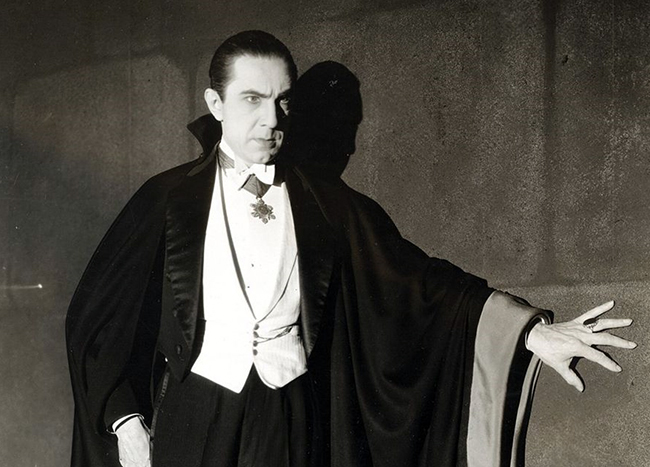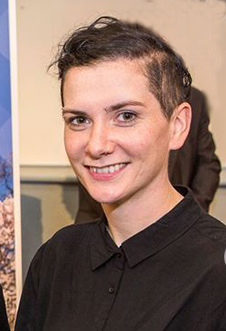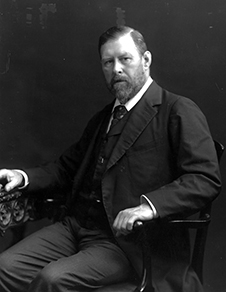
The seemingly obscure links between the ancient Celtic festival Samhain and Bram Stoker's Dracula will be celebrated later this month when a play based on the 19th-century gothic classic is read on Otago Access Radio.

Dr Emer Lyons
Centre for Irish and Scottish Studies Postdoctoral Fellow in Irish Studies Dr Emer Lyons and six members of Dunedin's Suitcase Theatre will read the adaptation at 9pm on 31 October.
Dr Lyons chose the play - which is adaped from Hamilton Deane's 1924 version - because it showcases Irish writing, and retains all the key elements of Stoker's 1897 classic.
As well as furthering the Centre's objective of highlighting Irish and Scottish literature and history, the event also draws attention to Samhain, a pre-Christian Celtic festival that underpins Halloween celebrations.
Irish Folk Lore, published in 1870, explained how during Samhain the boundaries between the spirit world and the land of the living become permeable; 'on All Hallows' Eve, hobgoblins, evil spirits, and fairies, hold high revel … many mortals are abducted to fairyland. Those persons taken away to the raths are often seen at this time by their living friends, and usually accompanying a fairy cavalcade.'

Bram Stoker
To ward off evil and confuse malevolent spirits, people lit huge fires, wore masks to disguise themselves and made lanterns out of vegetables; all practices that led to modern Halloween costumes, jack-o'-lanterns and bonfires.
“It's important to mark Samhain as a reminder to people that it is not an American holiday but a traditional Celtic fire festival,” Dr Lyons says.
“Samhain is a time to greet ancestors with the understanding that they are forever with us. In Ireland, people decorate their homes, play traditional games, tell scary stories by the fire. Every year, we take time to acknowledge fear. Fear is one of the most basic human emotions, and people fear death. In Dracula, this fear is magnified as some characters live eternally and some are possessed even in death. I think making a fiction or a play of fear makes the emotion less negative.”
While the Dracula and vampire narratives have assumed global proportions, Stoker's work conforms to the broader “Irish Gothic” genre.
Writing in the Irish Times in 2018, Fiona Fitzsimons suggested Stoker's love of storytelling, and the exposure to the gothic themes often found in his works, could have come during a long period of undiagnosed childhood illness. Stoker was born in Black '47 – the worst year of the Great Famine – and linked his undiagnosed childhood illness (that abated when he was seven) to the widespread contagion that followed the Famine.
During his illness, Stoker's mother told him stories about a cholera epidemic she witnessed in Sligo when she was a child, and his family's history. Fitzsimons suggests these tales would have given him “access to a world of gothic imagination and connected him to a lineage of Irish adventurers who looked out from [Ireland] and exerted great influence in continental Europe.”
Various critics have noted the “Irish Gothic” themes in Dracula successfully combined folklore, legend, vampire fiction and the Gothic novel's conventions with commentary on a cultural context that reflected a “growing domestic unease” over the morality of imperial colonisation. Several have described Count Dracula in the context of an Anglo-Irish landlord, sucking the resources from of the land.
The Dublin-born writer produced more than 10 novels and three collections of short stories before his death in 1912, and several of his titles were released posthumously. Due to its popularity, which has been enhanced by subsequent screen and television versions, Dracula has eclipsed Stoker's other works.
Listen: on OAR FM 9-10pm, 31 October. Based on the original play by Hamilton Deane (1924), directed and adapted by Dr Lyons, starring Suitcase Theatre. Presented in association with Otago Access Radio Music with editing by Dylan Shields and Alex Campbell-Hunt.
